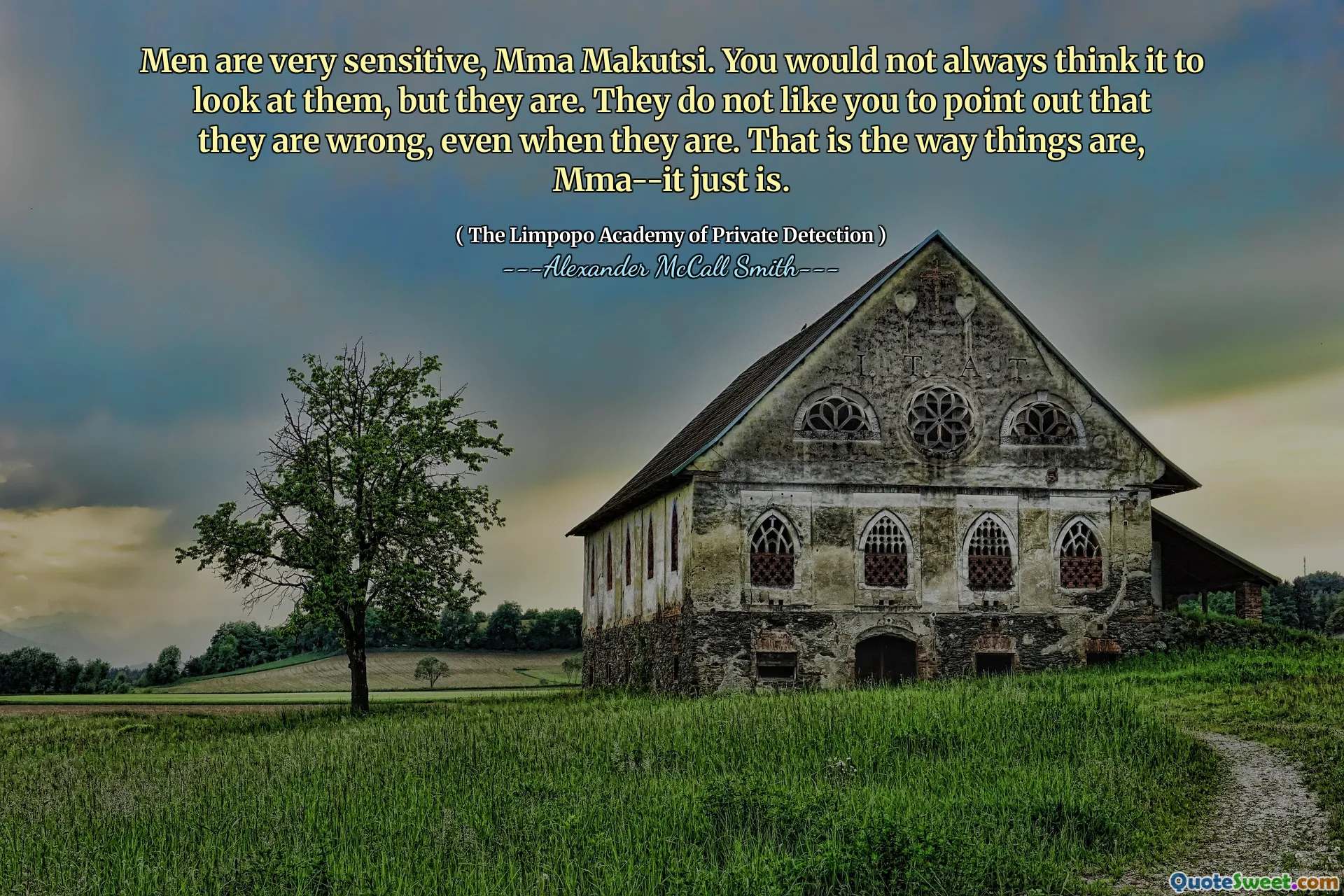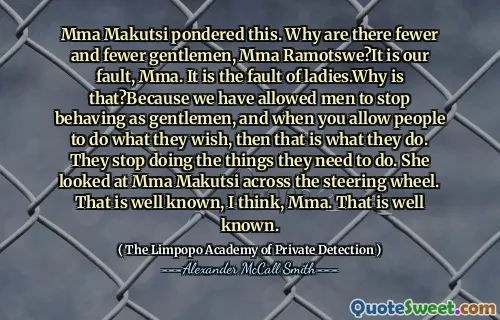
Men are very sensitive, Mma Makutsi. You would not always think it to look at them, but they are. They do not like you to point out that they are wrong, even when they are. That is the way things are, Mma--it just is.
In "The Limpopo Academy of Private Detection," the character Mma Makutsi reflects on the sensitivity of men, despite their outward appearance suggesting otherwise. She observes that men often react negatively when their mistakes are highlighted, indicating a deeply ingrained need for pride and ego preservation. This conversation highlights the complexity of male emotions and the often unrecognized vulnerability they possess. The quote emphasizes that, regardless of societal views on masculinity, men experience feelings and insecurities just like anyone else. Such insights challenge stereotypes and encourage a deeper understanding of human emotions, suggesting that acknowledgment of one's faults can be a difficult journey for many, particularly men. The narrative serves as a reminder that sensitivity is universal, transcending gender norms.
In "The Limpopo Academy of Private Detection," the character Mma Makutsi reflects on the sensitivity of men, despite their outward appearance suggesting otherwise. She observes that men often react negatively when their mistakes are highlighted, indicating a deeply ingrained need for pride and ego preservation. This conversation highlights the complexity of male emotions and the often unrecognized vulnerability they possess.
The quote emphasizes that, regardless of societal views on masculinity, men experience feelings and insecurities just like anyone else. Such insights challenge stereotypes and encourage a deeper understanding of human emotions, suggesting that acknowledgment of one's faults can be a difficult journey for many, particularly men. The narrative serves as a reminder that sensitivity is universal, transcending gender norms.










